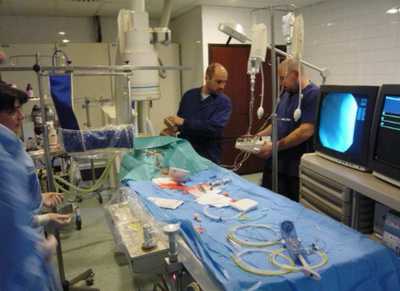ISTANBUL—There may be a rising tide of younger Turks heading back to the motherland, but one of Turkey’s most seasoned tycoons stresses that the fast-growing country also needs to lure home older talent if it is to maximize its growth spurt.

In his cavernous office overlooking Istanbul’s Bosphorus Strait, 84-year-old Ishak Alaton, chairman of Alarko Holding, one of Turkey’s biggest conglomerates, says the country’s economic resurgence has begun to attract highly skilled professionals and academics back; a prospect that could offer Turkish firms a much-needed innovation boost to help them compete on a global level.
Mr. Alaton—who along with U.S. and Scandinavian partners, has set up a Alvimedica, a Turkey-based healthcare company designing top-end catheters and stents sold across the world—is positioning himself as a spokesman for a business community seeking to attract some of Turkey’s most experienced expatriates back home.
“Let’s be frank, Turkey is not the finished article, but the economy is undeniably more solid, and people who’ve reached top-level positions abroad are thinking about coming back; they know they can live very well here, and many people who’ve made their name abroad would like to give something back to their homeland,” says Mr. Alaton, who himself briefly left Turkey to work in Sweden in the 1950s before returning to set up Alarko. “The fact is that we need them if we’re to turn this growth spurt into something more sustainable.”
Turkey’s economy has been underpinned by a tightly regulated banking sector offering record-low interest rates and surging domestic consumption. But analysts say the economy’s success as a mid-level manufacturing and product assembly hub won’t sustain the current levels of growth and rising expectations of a youthful population. In short: it needs top talent to boost innovation.
Through Alvimedica, Mr. Alaton is at the forefront of that drive. The company is located in a sprawling “techno-park” complex less than two hours from central Istanbul, which hosts research and development and manufacturing facilities.
Since its foundation in 2006, Alvimedica has attracted scores of expatriate professionals back from developed economies and is targeting a billion dollars in sales worldwide over the medium term. Almost 20% of Alvimedica’s 200 white-collar employees have returned to Turkey after education or professional experience
abroad.
Mr. Alaton’s pitch is compelling, but thus far, Alvimedica’s experience remains the exception rather than the norm.
Lingering problems frustrate efforts to lure top talent back home. In most cases, highly qualified Turks have to settle for lower salaries and the prospect of a burdensome bureaucracy that can hamper business. Mr. Alaton bemoans the fact that the government hasn’t offered incentives to tempt top talent to repatriate.
“The government has made great strides to improve our economy, but many of our successes have been despite their actions, rather than because of their help,” he says.
Alvimedica’s chief executive, Cem Boskurt, who himself returned to Turkey after a successful career as a surgeon in Germany, concedes that the firm’s experience is atypical, but stresses that it serves an example for other firms looking to attract top talent.
“We’ve worked with international partners to build a research and development center that can produce globally competitive products designed and manufactured here in Turkey,” Mr. Bozkurt said in an interview. “If we’re really going to make our mark, we need to innovate, not just assemble designs coined elsewhere.”
via Flow of Returning Turkish Expats Vital for Growth – WSJ.com.

Leave a Reply